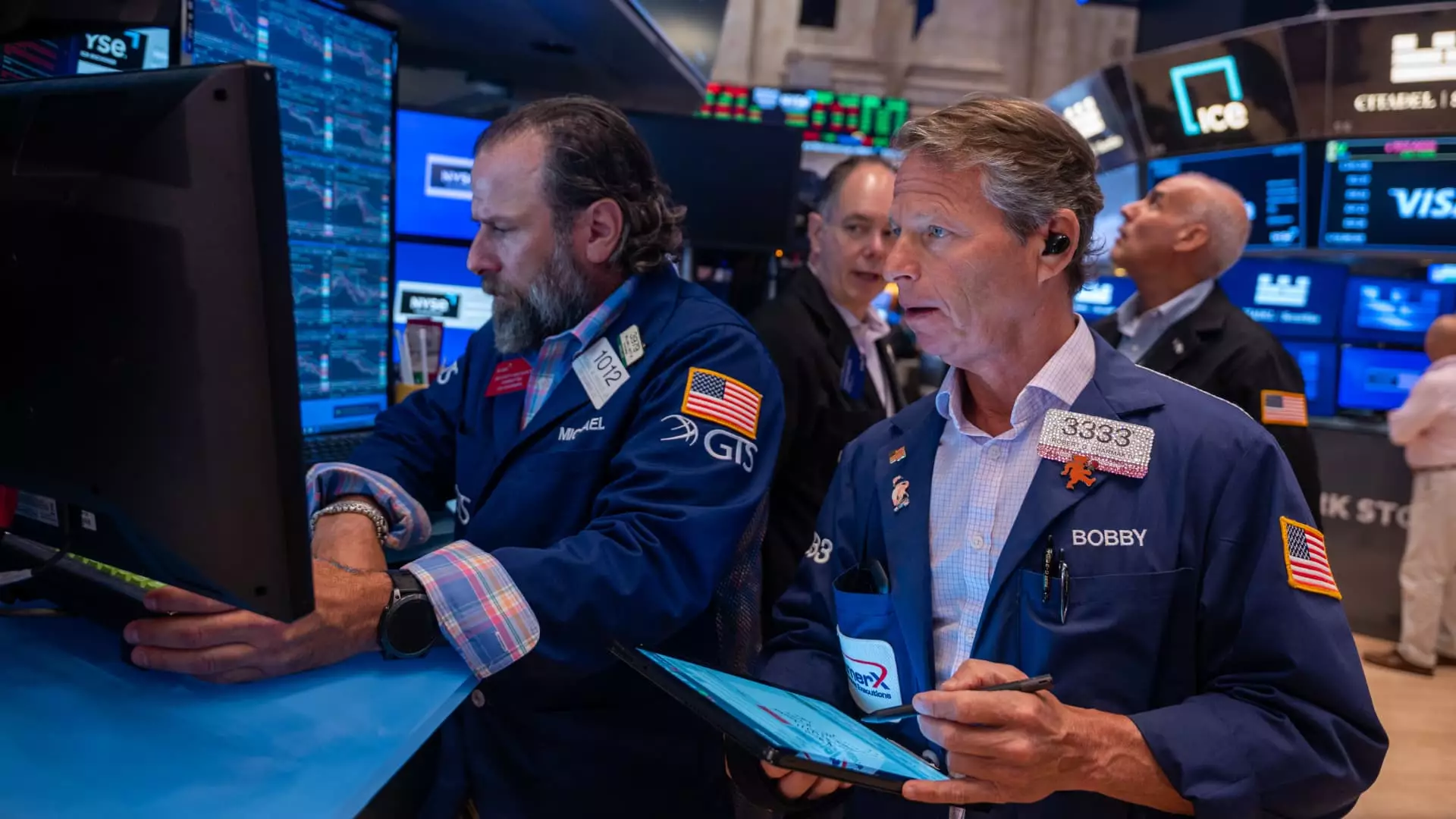In the latest installment of financial upheaval, the markets have revealed their underlying vulnerabilities. The steep declines in major indices underscore a sobering reality: our economy is teetering on the brink of a slowdown, if not outright recession. This isn’t just a routine correction; it’s a stark warning that optimism fueled by fleeting earnings reports and policy promises may be dangerously misplaced. As the Dow plunges over 400 points and the S&P 500 and Nasdaq sustain sharper losses, it becomes painfully clear that external shocks—namely trade conflicts and economic undercurrents—are exposing the fragility of the current economic landscape.
What is particularly disturbing about this downturn is the underlying labor market data. The recent jobs report paints a bleak picture: job creation has drastically fallen short of estimates, and previous months’ figures have been significantly revised downward. This trend signals a weakening labor market that could have far-reaching implications for consumer confidence and overall economic health. When job growth stalls or contracts, it doesn’t just affect employment figures; it erodes the very foundation of consumer spending, which is the engine of modern economic vitality.
Policy Responses: Too Little, Too Late?
The market’s volatile response to the recent economic data highlights an ongoing dilemma for policymakers. The Federal Reserve appears trapped in a conundrum: should it cut interest rates to stave off recession, or continue its cautious stance, waiting to see if inflation will rise under the weight of tariffs and global uncertainties? Currently, investors are betting heavily on a rate cut in September, with futures indicating a 66% likelihood. However, this optimism may be misplaced if policymakers remain overly cautious or indecisive.
It is disheartening to witness a disconnect between economic reality and policy signals. The Fed’s previous signals that it needs to evaluate tariffs’ inflation effects before easing monetary policy now seem insufficient. What’s more troubling is that the delays in intervention might have already missed the opportunity for a proactive approach—one that could have softened the blow of these mounting economic headwinds. Instead of acting swiftly, policymakers risk sending mixed messages that undermine confidence, fueling volatility rather than stability.
Trade Wars and Tariffs: A Catalyst for Economic Deterioration
Adding fuel to the fire are the escalating trade tensions, particularly the recent announcement of increased tariffs. The White House’s decision to impose tariffs as high as 41% on certain goods, along with additional levies on transshipped products and imports into Canada, amplifies the cost burdens on businesses and consumers alike. This policy shift may appear to serve short-term political goals, but the long-term economic consequences threaten to be far-reaching and detrimental.
The impact on global trade dynamics cannot be overstated. For a country like Canada, a vital trade partner, skyrocketing tariffs could create ripples across supply chains and consumer markets alike. The ripple effect intensifies fears of a slowdown in global economic activity, which in turn exacerbates the domestic slowdown already in motion. Trump’s tariff escalation sends a clear message: the era of free trade is retreating, replaced by a protectionist stance that undermines the principles of open markets and mutual prosperity.
Market Sentiment: Navigating a Minefield of Uncertainty
In this turbulent environment, individual companies face stark realities. The tech sector, as represented by Amazon, suffered significant declines after issuing cautious guidance, signaling that even industry leaders are feeling the heat of declining consumer demand and operational headwinds. Meanwhile, bright spots like Apple’s earnings beat offer temporary relief, but they are overshadowed by a broader sense of economic malaise.
The smattering of positive earnings reports from giants like Microsoft and Meta Platforms was unable to lift the mood — a testament to the market’s growing sensitivity to macroeconomic challenges. Investors are now learning the hard way that solid earnings are not enough to combat the overarching fears of recession, trade disruptions, and policy indecision. The recent market rallies have proved fleeting, with intraday highs quickly giving way to declines, exemplifying a nervousness that is almost palpable.
The Broader Implications: Challenging the Optimism of the Recent Past
Overall, the current market chaos underscores a stark truth: economic resilience is more fragile than many had believed. The combination of restrained job growth, mounting tariffs, and uncertain policy responses threaten to erode the confidence that’s been instrumental in propelling markets forward in recent years. While some may still cling to hope that rate cuts will come to rescue the economy, the reality is that such measures might be too late—or insufficient—to prevent a deeper malaise.
The ongoing turmoil reveals that markets are increasingly driven by fear and uncertainty rather than fundamentals. As the economy struggles to find its footing, investors—especially those with center-left liberal perspectives—must recognize the importance of balanced policy that promotes sustainability over short-term gains. This is a pivotal moment to scrutinize the reckless optimism pushed by certain policies and to advocate for pragmatic, measured responses that prioritize economic stability, fair trade, and the well-being of the broader society.


Leave a Reply